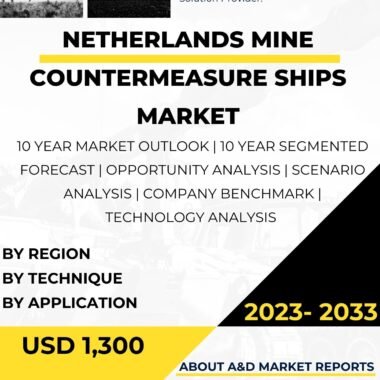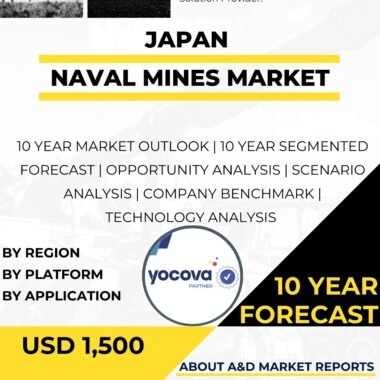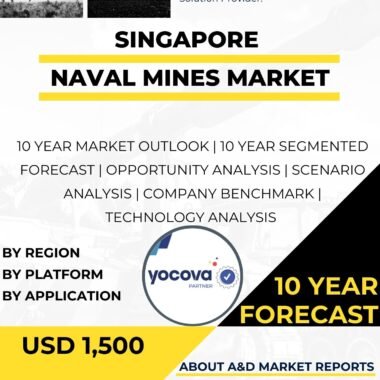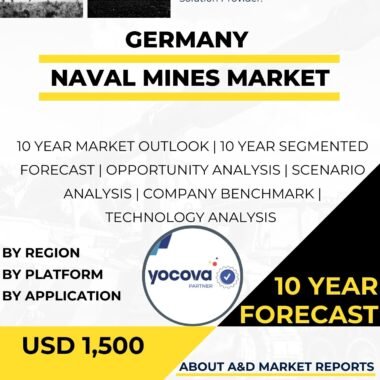Description
Overview of the Australia Mine Countermeasure Ships Market
The Australia mine countermeasure ships market plays a crucial role in strengthening the nation’s naval defense. As an island country with vast coastlines and vital offshore interests, Australia faces risks from naval mines that can threaten shipping routes, naval fleets, and maritime operations. Mine countermeasure ships are essential for identifying, neutralizing, and removing naval mines, ensuring maritime safety and protecting national interests.
Strategic Importance of Mine Countermeasure Ships
The significance of the Australia mine countermeasure ships market lies in the country’s strategic location and economic dependence on secure maritime trade. Australia’s Exclusive Economic Zone (EEZ) covers more than three million square kilometers. This vast area is vital for trade, resource exploration, and defense. Naval mines pose serious threats to these activities, and mine countermeasure vessels are critical in maintaining freedom of navigation and maritime security.
Current Fleet and Capabilities
The Royal Australian Navy (RAN) currently operates a range of mine countermeasure vessels. The Huon-class minehunters form the backbone of Australia’s fleet. These ships are equipped with advanced sonar systems, remotely operated vehicles (ROVs), and mine disposal systems designed for high-precision detection and clearance. The HMAS Diamantina, a multi-purpose vessel, can also be adapted for mine countermeasure missions, increasing operational flexibility.
Key Industry Players
Several defense companies are shaping the Australia mine countermeasure ships market. Thales has been a key contributor, supplying minehunters and advanced sensor technologies for the RAN. The company’s expertise in sonar, mine disposal, and naval systems has significantly boosted Australia’s capabilities. Other global defense leaders, such as Lockheed Martin and Saab, have also developed innovative mine countermeasure technologies that support the country’s naval modernization goals.
Technological Advancements in the Market
Integration of Unmanned Systems
A major trend in the Australia mine countermeasure ships market is the adoption of unmanned systems. Unmanned Underwater Vehicles (UUVs) and Remotely Operated Vehicles (ROVs) can operate in high-risk areas, minimizing danger to human personnel. These autonomous platforms can map large underwater areas, identify threats, and neutralize mines with precision tools or explosive charges.
Enhanced Sensor and AI Capabilities
The market is also benefiting from advancements in high-resolution sonar and magnetic anomaly detection systems. These technologies improve the accuracy of mine detection and classification. By integrating artificial intelligence and real-time data processing, operators can achieve faster and more informed decisions during missions, enhancing the overall success rate of mine clearance operations.
Future Outlook for the Australia Mine Countermeasure Ships Market
The Australia mine countermeasure ships market is set for steady growth. As maritime security gains more strategic importance, the Australian government is expected to increase investment in fleet modernization and new vessel acquisition. Upgrading the Huon-class minehunters with advanced sensors and mine disposal systems will likely extend their operational life.
Future plans may include the introduction of next-generation mine countermeasure vessels featuring autonomous technologies, modular payloads, and advanced sonar systems. Collaboration between Australian defense industries and international partners will drive innovation and ensure the development of cost-effective and capable solutions.
Conclusion
The Australia mine countermeasure ships market remains vital for protecting the nation’s maritime interests and ensuring naval readiness. With modern fleets, strong industry partnerships, and rapid technological advancements, Australia continues to enhance its ability to detect and eliminate mine threats. Continued investments in modernization, unmanned systems, and advanced sensors will strengthen the Royal Australian Navy’s mine warfare capabilities and maintain Australia’s leadership in maritime defense across the Indo-Pacific region.




